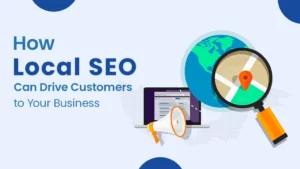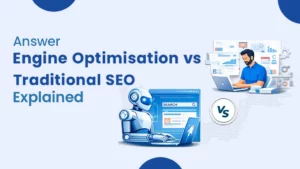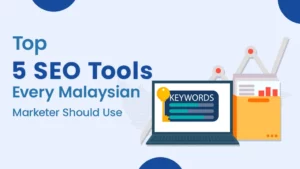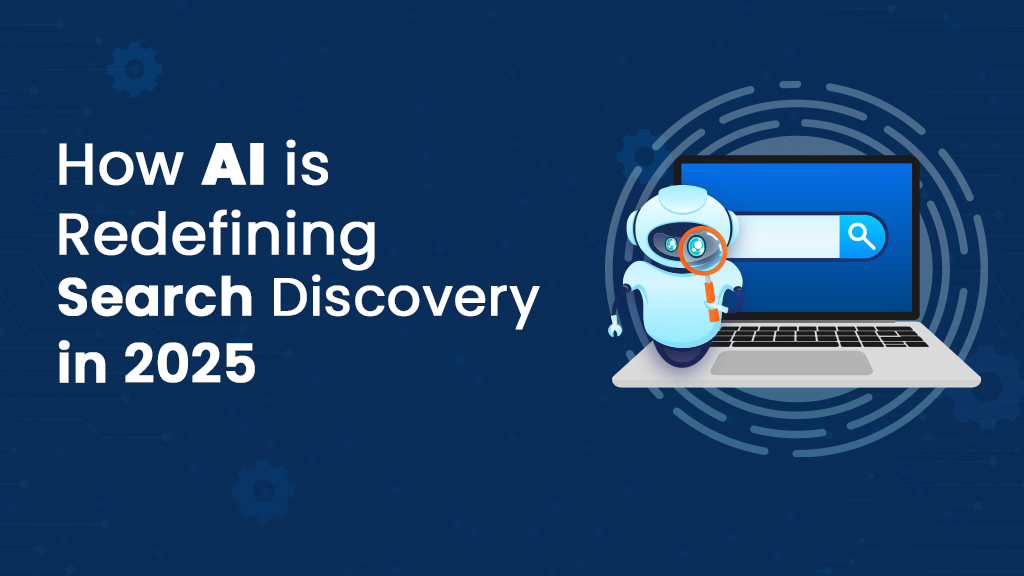In 2025, search has become far more intelligent, personalised and instantaneous. The rise of AI-powered search engines is reshaping how users discover information, how brands appear online and how SEO strategies are structured. Search is no longer just for browsing as it now acts like a smart assistant that answers questions, gives advice and even helps you shop.
As we step deeper into the age of conversational and generative AI, the rules of digital discovery are being rewritten.
In this guide, we’ll explore how AI is transforming search and what businesses can do to keep up and stay visible in this new landscape.
From Keywords to Intent-Based Search
Traditional SEO strategies revolved around matching keywords. Marketers optimised content for search phrases like “best coffee maker” or “budget travel tips.” But in 2025 the focus has shifted from keyword matching to intent understanding.
AI-powered search engines interpret natural language queries with greater nuance. Instead of just looking for words they analyse user behaviour, context and even emotions behind a query.
For example, when someone asks, “What’s the best way to sleep better after jet lag?” so the AI doesn’t just pull keyword-based articles but provides tailored sleep tips based on science, travel data and sleep patterns.
This shift means brands must build content around user intent, using conversational language and answering real-world questions with clarity and depth.
Rise of AI-Powered Search Engines
The biggest transformation in the future of SEO 2025 is the dominance of AI-enabled search engines. Google’s Search Generative Experience (SGE), Microsoft’s Bing Chat and tools like Perplexity AI, You.com and other AI SEO Tools are at the forefront of this evolution.
These platforms go beyond by displaying a list of blue links. They:
- Summarize multiple sources into one coherent answer.
- Suggest follow-up questions to deepen engagement.
- Integrate shopping or product recommendations right in the search panel.
For users, this means quick, complete answers. For brands, it means new chances to be seen or missed by potential customers.
If your content isn’t structured in a way AI can understand, it might not be included at all. Brands must now compete not just for rankings but to be included in AI-generated answers.
Hyper-Personalised & Multi-Modal Search Experiences
AI doesn’t just understand your question, but it understands you. By learning from your past searches, preferences and even the devices you use, AI in search discovery creates highly personalised results.
Search results in 2025 can vary widely between users even when they ask the same question. One might receive a blog post, another a YouTube video and another a product comparison chart. This personalisation extends to:
- Voice assistants (like Alexa or Siri) understand your tone and preferences.
- Visual search tools (Google Lens, Pinterest Lens) allow users to search via images.
- Shopping integrations, where AI suggests what to buy, compares prices, and even places orders.
For marketers, this means optimising content for more than just webpages. Brands need to think across multiple formats and channels to stay visible on all platforms and devices.
Challenges to Organic Visibility in the AI Era
While AI improves user experience it raises serious challenges to traditional SEO and content strategies. The most significant issue is the rise of zero-click search where users find their answers directly on the search engine results page (SERP) without clicking through to a website.
This behaviour is made possible by AI summaries and tools that put the following at risk:
- Less website traffic, since people don’t need to click on links.
- Harder to track results, making it difficult to know where visitors came from.
- Reduced brand visibility, if AI uses your content without giving credit or a link.
The future of SEO 2025 requires brands to rethink how success is measured. It’s no longer about page views alone but it’s about visibility within AI-generated content, influence and being the trusted voice the AI chooses to cite.
Adapting SEO for AI and Generative Search
That’s where Answer Engine Optimization (AEO) comes in which is an updated version of SEO designed for AI-driven results. To help your content show up in AI-powered search engines marketers should:
- Use structured data: Implement FAQ schema, How-To markup and clear metadata.
- Write concise, direct answers: Use bullet points, short paragraphs and question/answer formats.
- Focus on long-tail and natural language queries: Match the way people speak to AI assistants.
- Demonstrate authority: AI systems prioritise content from trusted, credible sources.
It’s not just about creating content but it’s about creating content AI can parse, understand and trust.
Opportunities Beyond Rankings
Despite the challenges, AI in search discovery offers new and exciting opportunities for brands ready to innovate:
- Monetization through AI shopping: Google and Perplexity are already integrating affiliate links and sponsored products into AI results.
- Content licensing: Publishers and data providers are starting to license their content to AI platforms for inclusion in training and responses.
- Branded AI experiences: Some brands are building their own chatbots and AI search tools to guide users through products and services with tailored support.
In this environment, content is not just for SEO but it’s for AI engagement. Think beyond the SERP and find ways to embed your brand directly into AI ecosystems.
Future-Proofing Your Strategy
To stay relevant in the future of SEO 2025, businesses must cultivate an AI-first mindset. That means:
- Training your team to use AI tools for content creation, analysis, and automation.
- Investing in your brand: Strong brand equity makes it more likely you’ll be cited in AI summaries.
- Tracking AI visibility: New tools will help you see how often AI uses your content so start using them early.
- Staying agile: AI search is evolving rapidly. Brands that monitor changes in platforms like Google SGE or Bing Chat can adjust faster than competitors.
In short, the brands that embrace change and lead the conversation on AI will stay one step ahead.
Conclusion
In 2025, AI is no longer a feature of search but it is search. As AI-powered search engines change how people find and use information, brands need to focus less on just being seen and more on being helpful and trustworthy.
The future of SEO 2025 lies in clarity, credibility and connection. Brands that structure their content for AI, understand user intent and maintain authority will not only survive the AI revolution but they’ll lead it.
At BThrust, we help businesses in Malaysia to grow online through expert SEO, digital marketing and custom web solutions tailored to your goals. Visit us today to get started.




